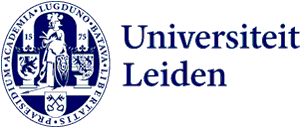Network event
Partnering Heritage? Developing Academic Agendas for Una Europa from Southern Africa
- Date
- Saturday 9 November 2024
- Time
- Address
- Join online or live in Johannesburg at the Windybrow Arts Centre

How is ‘making heritage’ relevant to interlocutors in cultural contexts in southern Africa? What are opportunities, challenges and hindrances for engaged social actors? And how can connecting to Una Europa – an alliance of 11 leading research universities with expertise in cultural heritage – help students, scholars, and other societal stakeholders to address these issues in a reciprocal way?
These questions will be addressed at this network and brainstorming event, an initiative of Una Europa's Self Steering Committee for Cultural Heritage. Leiden University is part of the Una Europa alliance, and two colleagues — Erik de Maaker and Sybille Lammes — serve on the committee.
Join in person or online
The Partnering Heritage event is aimed at academics with an interest in cultural heritage, master’s and MPhil students, PhD candidates and colleagues from the NGO and museum sector.
Register by 15 October if you would like to attend, in person or online.
Please indicate on the form if you would like to make a short statement, pose questions, or share a provocation. Pitches should be 3-5 minutes, and aimed at fostering debate relating to the theme of the network event. You may bring an object, share pictures, or a (very short) video. It is not mandatory to make an intervention, but as convenors we would appreciate it if you do so. Use the registration form to provide a title and a (very short) abstract.
We will respond shortly after the deadline with more information.
More about the event
The main objective of this event is to explore and forge connections between the study of heritage and the challenges the world faces in terms of health and well-being, environment, climate change, global migration, decolonization as well as the emerging digital divides. Each of these challenges play out in the now, and engaging with them demands a reimagination of futures. This means that studying and interpreting heritage, in defining, assessing, and interpreting pasts, can provide inspiration to rethink and redefine the challenges mentioned. We want to develop this theme together with new and existing global partners.
Partnering Heritage will be kicked off by societal actors and scholars who, through their work, engage with the kind of questions outlined above. They will introduce us to and discuss the heritage-related academic and societal agendas that they are attempting to enact.
About the committee
Una Europa’s Self-Steering Committee in Cultural Heritage brings together scholars from all of the alliance’s 11 partner universities. These universities are particularly strong in the fields of Social Sciences and Humanities.
In addition to encouraging cooperation between its European partners, this committee and the Una Europa alliance at large aim to create strong academic partnerships worldwide. Both European and global teamwork are needed to identify research agendas that address how heritage is redefined and attains new relevances across local, regional, national, and global contexts. Possible issues include the desirability of, and hindrances to, the repatriation of material objects removed from their original owners in contexts of (colonial) inequality; the need or urgency of decolonizing cultural heritage – and what that may imply.
